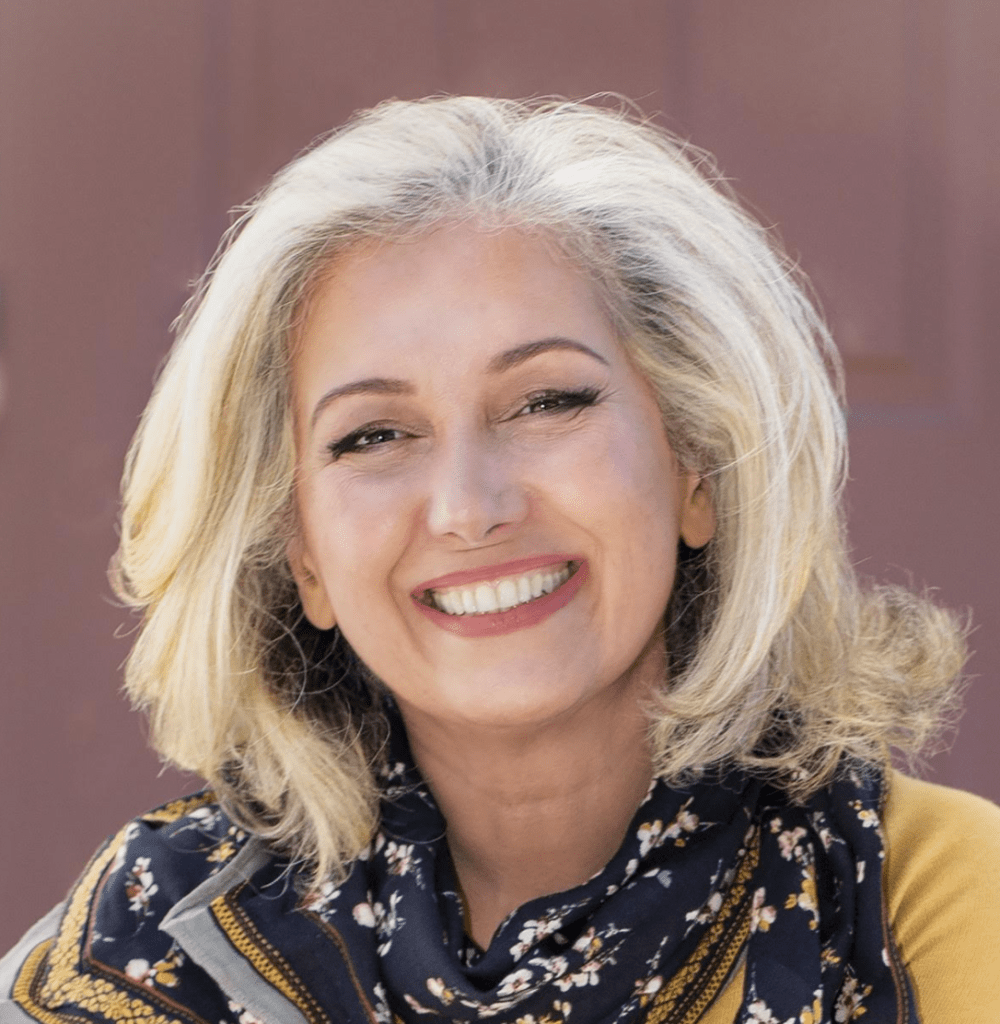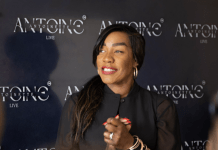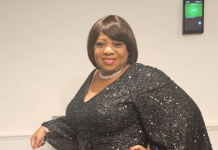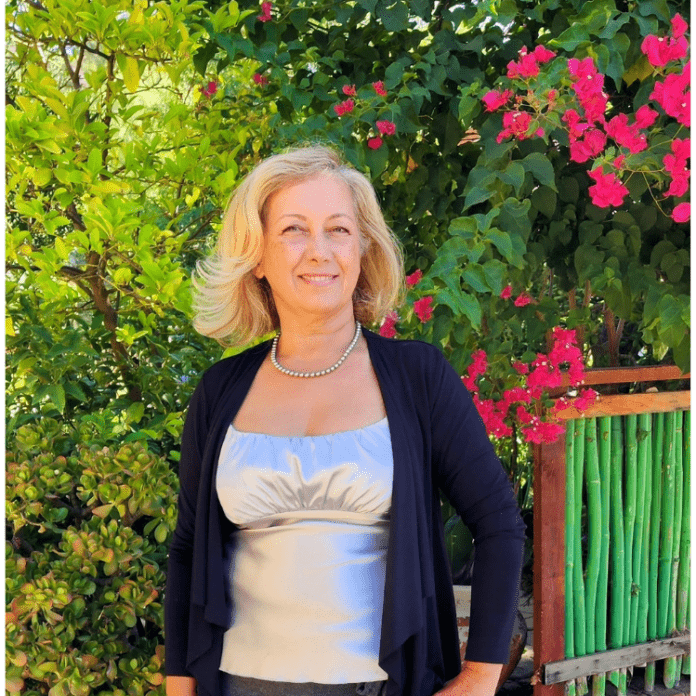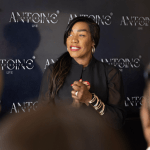With a vision as bold as it is transformative, Manijeh Motaghy is on a mission to optimize one billion lives by 2042. As an organizational psychologist, author of It’s Not Easy to Be Human, and founder of Perfectly Here, she has spent nearly two decades helping individuals and organizations align with what she calls the “natural laws of life.” Through her groundbreaking Mindful Life Optimization (MLO) methodology, Manijeh is rewriting the narrative of leadership, success, and personal fulfillment—guiding people from burnout and self-doubt to purpose, clarity, and impact.
Your book is titled “It’s Not Easy to Be Human.” What inspired you to write this, and how does it speak to today’s challenges for women in leadership and business?
The title came from an expansive realization I had after decades of working with individuals from all walks of life, like CEOs, parents, engineers, artists, young and old alike, who, despite their accomplishments, still struggled with self-worth, anxiety, confusion and feeling stuck in some aspect of their lives. I recognized in them faulty inner programming and missing some essential knowledge about how naturally life works, and the skills to align with life to experience complete happiness. For women in leadershi,p especially, the pressures and challenges are multilayered. This book offers a roadmap to wholeness through understanding natural laws and cultivating inner skills that enable us to create goals that are to our best interest and achieve them with ease and joy.
You’ve developed the Mindful Life Optimization (MLO) methodology. Can you explain how this framework helps individuals and organizations thrive, especially in high-pressure environments?
MLO is a scientifically grounded and compassion-driven methodology for optimizing human potential. It helps people upgrade their habitual living or “human software” to living with conscious awareness aligned with truth, resilience, and meaningful contribution. In high-pressure environments, MLO reduces reactive behaviors and strengthens connection, emotional regulation, and regenerative planning. It enables leaders and teams to show up with integrity and purpose during good times and bad.
As a successful organizational psychologist, author, and founder of Perfectly Here, a nonprofit, how have you balanced business strategy with heart-centered values in your career?
I don’t separate them. To me, business is a sacred opportunity to serve and uplift lives. Every decision (from working with people to program design, pricing, and delivery) is approached with awareness and dedication to ethical responsibility, systems thinking, and compassion. When disagreements arise or when a team member or customer is distressed, we pause, listen, and hold space. We explore solutions with care and without judgment. When faced with daily challenges, we continue to acknowledge change as an impersonal aspect of nature, to manage the fears and anxieties that come with uncertainty.
Many women in business struggle with burnout, self-doubt, and emotional overload. Which lessons from your book offer them a way forward?
First, to know that it’s not easy to be human, which is why I titled my book as such. It’s not a personal failure to feel overwhelmed. Our systems are not designed to support the full complexity of being human. In fact, we’ve made life more complicated than it needs to be, and we can’t see it. Many of the lessons in my book teach how to develop inner skills like self-analysis, wise mental efforts, and wise actions. It’s like having an experienced navigator who sees both the big picture and the details of the landscape. In this case, the landscape is one’s thoughts, choices, and actions and where they lead. This wise navigator helps us regulate emotions, set adaptable boundaries, and cultivate qualities like goodwill, self-love, inner peace, and joy for the joy of others. I call this Superior Heart Intelligence. Qualities that allow us to succeed without sacrificing personal, societal, or planetary well-being.
Tell us more about “superior heart intelligence” and why do you believe it’s more important today than traditional models of success or emotional intelligence?
Superior Heart Intelligence is what separates blind kindness from wise actions and the ability to envision and enact the good of all. It goes beyond managing emotions or even empathy. Superior Heart Intelligence taps into the superior power of goodness as a compass for truth, ethics, and self-interest for fulfillment. In a world driven by speed and algorithms, Superior Heart Intelligence acts as a buffer, protecting us from our own mind’s illusions and protecting others from our unskillful conduct. It helps us understand that life is too short to end with regrets. And the best part is, Superior Heart Intelligence can be cultivated through the five-stage Human Software Optimization (HSO) process, provided in my book.
You aim to optimize one billion lives by 2042. That’s bold and inspiring. What strategies are you using to scale this vision globally?
We’ve been around for over 18 years and deeply understand how the human mind works. We now have a comprehensive manual in the form of a book that anyone can access. Beyond that, we’ve built a multi-layered ecosystem of online courses, retreats, and certified MLO counselors. Next, we’re expanding into AI-powered coaching, local and global training hubs, and partnerships with sustainability leaders, tech companies, and educational institutions. By embedding MLO into systems that influence millions, from schools to corporate to policymaking, we’re building a movement for global human flourishing. Thank you for this interview. You’re a part of actualizing this vision.
How do you define success now, compared to when you started your journey in business and psychology?
Early on, success meant credentials and recognition. Now, success is about inner joy, positive impact, and legacy. It’s in the ripple effect when someone says, “Your work helped me feel whole,” or when I see a student or mentee become a conscious leader in their own community. That’s success to me; having fulfilled my human potential and role and responsibility.
What role do you believe human development plays in solving larger systemic issues such as sustainability, mental health, and AI ethics?
Human development is central to everything. Every broken system, whether it’s about personal unhappiness, governance, ecological collapse, or unethical tech starts with underdeveloped qualities that are essential to our species’ success.
We create businesses, lifestyles, rules and regulations, and build systems that are often based on half truths and imaginations, even if we do so with the best of intentions. But we’ve ended up creating wicked problems. Problems that we can’t see the root causes of and that are too complex to unravel and resolve. Until we upgrade human development we’ll keep having mental health issues, AI issues, systemic injustices, and environmental issues, to name a few. Optimizing human development isn’t a luxury for a few, it’s the right of every member of the human species.
What advice would you give to emerging women leaders who want to lead with integrity, compassion, and impact—but often feel pulled in too many directions?
First, slow down. Breathe. Notice your thoughts and where they lead. Instead of trying to find solutions for everything through your thoughts, learn to feel your body through physical sensations, and changes that occur. The body is composed of countless systems that work well. You can learn from that. The breath, for example, is taken in by the body accepting what it needs and releasing what it doesn’t. It does so effortlessly. The breathing system is efficient, precise, and logical, with perfect engineering. When we understand this, we stop clinging to anything or resisting change. Instead we learn to dance, swim, and flow with events as they arise. Learn to be clear about what your thoughts are doing, where they lead you and always, always have the best interest of yourself and others in mind. Leadership rooted in truth and kindness always finds a way.
